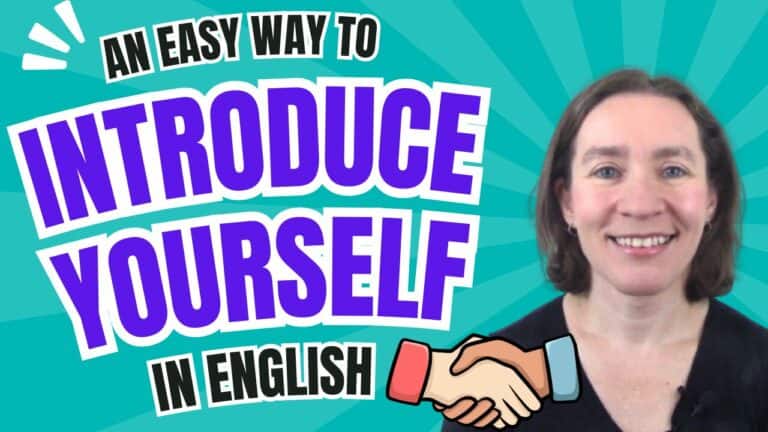
If you’re learning English for your career, make sure to check out my Business English Course, with 40 practical lessons!
Informal: I want to talk to you about the project.
More formal: I would like to discuss the project with you.
- “I would like” is a more polite way to express what you want
- “discuss” is a more formal way to say “talk about.” Note that we don’t use “about” after “discuss.”
- Note the prepositions: you can “talk TO someone ABOUT something,” but you “discuss something WITH someone.”
Informal: I’ll get in touch soon.
More formal: I will contact you shortly.
- In more formal business communication, we avoid contractions (short forms) like “I’ll” – so that’s why it is changed to “I will.”
- “Get in touch” is an informal way to say “contact.”
- “Soon” is also OK to use in business English, but “shortly” is another alternative that makes it sound a little more formal
Informal: You need to send in your application by June 30.
More formal: It is necessary to submit your application by June 30.
- “It is necessary” is a more formal/indirect way to talk about needs and requirements
- “Submit” is a more formal way to say “send in”
Informal: Sorry it’s taking forever.
More formal: We apologize for the delay.
- It’s common to use “sorry” in conversational English, but in more formal business communication, use “We apologize” (if you are speaking on behalf of a group or company) or “I apologize” if you are speaking for yourself
- “it’s taking forever” is an informal way to exaggerate the length of the wait (essentially, saying it is taking a VERY long time). In business English, the word “delay” is a better choice.
Informal: I promise to fix the problem right away.
More formal: I assure you that I will resolve the issue as soon as possible.
- “I assure you” is a more formal way to promise things.
- Describing a problem as an “issue” helps minimize the negative connotations associated with the word “problem,” and “resolve” or “solve” can be used as a more formal word for “fix.”
- “Right away” means “now” or “in the very near future.” In business English, it’s better to say “as soon as possible” or “immediately.”
Informal: Don’t forget that you need to pay us by Friday.
More formal: We would like to remind you that payment is due by Friday.
- In everyday English, we tell people “Don’t forget” – but in business English, “We would like to remind you” is a more polite way to help someone remember something.
- If something is “due” on or before a certain date, it means it must be finished or completed before that time.
Informal: Also, please give us a list of your products.
More formal: In addition, please provide us with a list of your products.
- When speaking informally, it’s common to start a sentence with “Also,” “Plus,” or “And” to add information. In more formal business English, “In addition” sounds better.
- “Provide” is a little more formal than the common verb “give.” Note the prepositions: someone gives YOU something, but someone provides you WITH something.
Informal: See you later.
More formal: I look forward to seeing you.
- When you are anticipating seeing someone in the future, say “See you later” informally to friends. In business communication, it’s better to say “I look forward to seeing you.”










